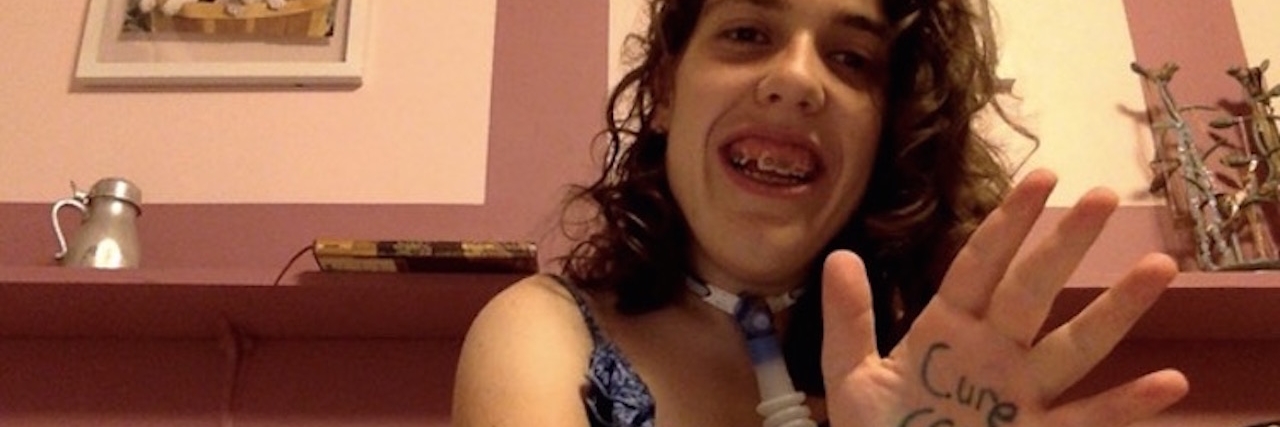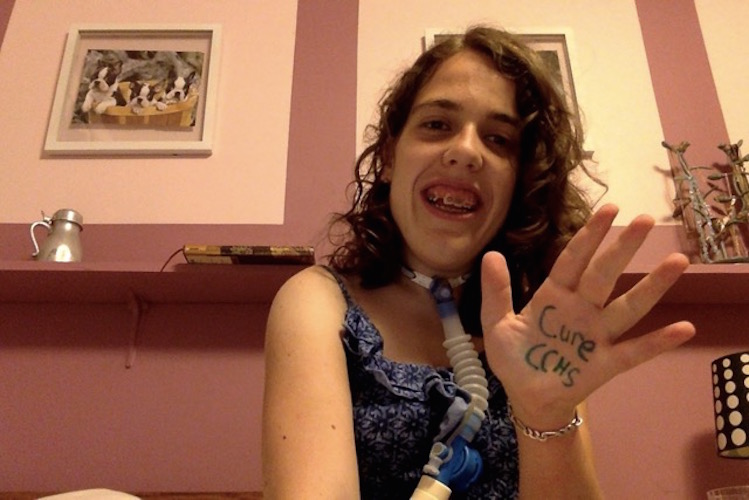6 Things I Wish People Understood About Growing Up With a Trach
I had a high spinal cord injury while I was being born, which affected two parts of my brain: the automatic nervous system and the part of my brain that controls the physical parts of my body. As a result, I don’t breathe in my sleep and require a tracheostomy and a ventilator to keep me breathing in my sleep. If I don’t have it on while I sleep and get into a deep sleep, my carbon dioxide could skyrocket, my oxygen could bottom out and I could die. It sounds awful and sad, but hey, I’m used to it.
Having a trach, a G-tube and a bit of a physical disability my whole life, there were things I wish people knew about what it was like to be me.
1. Having a trach makes me stick out in a crowd.
I grew up in a smaller city in Canada named Saskatoon. When I was born, it wasn’t nearly as big as it is now, so everyone — and I do mean everyone — knew when the girl who couldn’t breathe was born. To this day, people who were my nurses while I was in the PICU and people I went to elementary school with recognize me. Having a trach makes me stick out in a crowd. I’ve always been outgoing, so that never bothered me.
2. I’m not sick by choice.
I’m not bailing on plans, and I’m not skipping class. When I get sick, all hell breaks loose, and I’m tethered to my ventilator, unable to leave except to go to the bathroom.
3. I spend a lot of time in the hospital as a result of having a trach.
My immune system is fine; it’s just that having a trach gives easy access to my lungs. One time I was in the ER when a cold got out of control and antibiotics were needed stat. When the doctor walked in, the first thing I said was, “Why is your ID badge from Edmonton?” I had oxygen up my nose and they were taking my blood and I felt like crap, and yet those were the first words out of my mouth. He just smiled and said, “Wow, you spend a lot of time in the hospital, don’t you?” I’d never felt heard or believed until that moment, and it stuck with me all these years later. As a person who always deals with doctors and medical personnel, I never feel heard. When I do, it’s so special, and I wish people understood that.
4. My normal is different than everyone else’s normal.
My life is not school, work, home and repeat. It’s “live as much as you can before you end up in the ICU again.” Don’t go grocery shopping, order more suction catheters and argue with the women holding them hostage. Don’t do laundry; go get more gauzes to keep your G-tube leakage at bay. Then do laundry.
5. Questions are appreciated, and I want to educate people — but don’t stare.
I want people to know that breathing may be hard for me, but I can have a life as well. I once was at a French program and I was there for two days before a boy asked me what my trach was. The funny part was that we weren’t allowed to speak English, so he said, “Qu’est-ce…” then he rubbed his neck where my trach was. I laughed and grinned, then explained what it was and why it was there. It was so much nicer then him staring.
6. I’m a person, too.
The important thing I want people to understand is that I’m a person too. I have dreams, I have plans and I have friends. It might be harder to reach my goals, which only makes me more determined to do it. When there are more odds stacked against someone, chances are they are going to be the most stubborn person you ever met.
This is my life. Don’t mock it or make me feel any less of a person — just help me if I need it. And don’t stare. It’s not polite.


